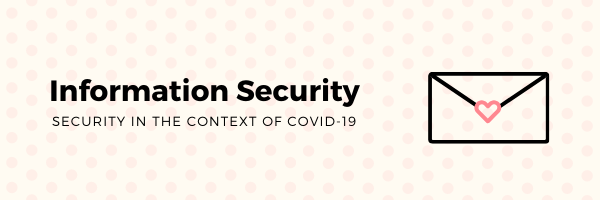During our time of social distancing, we’ve focused on the physical and mental health of ourselves and community to ensure our wellbeing. A Public Service Announcement released by the FBI last week warns us of another area of concern, which might not be on our minds: technology and information security.
What does this look like?
- Fake CDC or health organization emails
People looking to steal your personal information might send an email pretending to be an official health organization. It is important in these instances to delete the email immediately and NOT click or open any links or attachments. Opening these put your device and personal security at risk for being hacked.
- Phishing emails
In a similar fashion, you might also receive an email about receiving a check from the government. This is a phishing attempt to hack your personal information. Although there has been conversation about receiving checks from the government during the pandemic, it has not been passed. The FBI also warns to be aware of emails from charitable contributions, general financial relief, airline carrier refunds, fake cures and vaccines, and fake testing kits.
- Counterfeit treatments or equipment
There is currently no treatment for COVID-19. Please be aware that those trying to sell these products are counterfeit. Also be on alert for those trying to sell counterfeit equipment like sanitizer, masks, and gloves. If found, this should be reported to https://www.ic3.gov/.
Overall:
- Do not open emails, links, or attachments that come from an unfamiliar source.
- Do not give out your personal information (name, date of birth, social security number) to an untrusted source.
- Check the validity of your information. The most reliable source of information is going to be through the government websites (i.e. CDC, Travis County, Austin Public Health, Texas State Department of Public Health).
To see the official FBI PSA visit: https://www.ic3.gov/media/2020/200320.aspx
